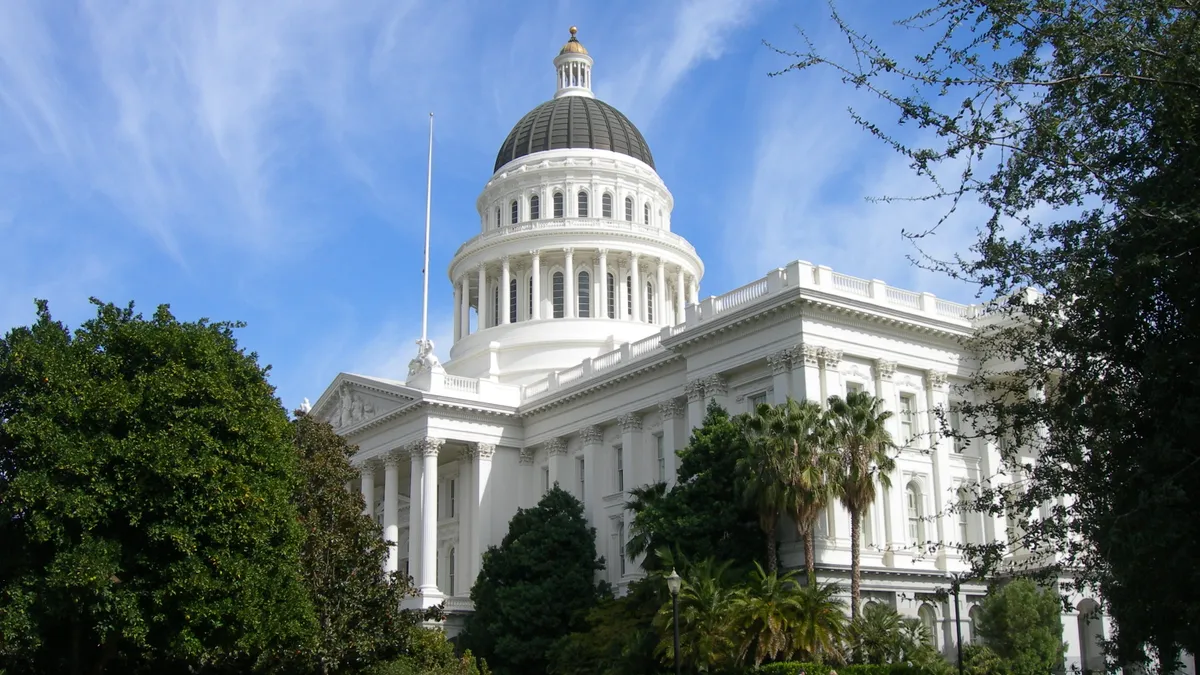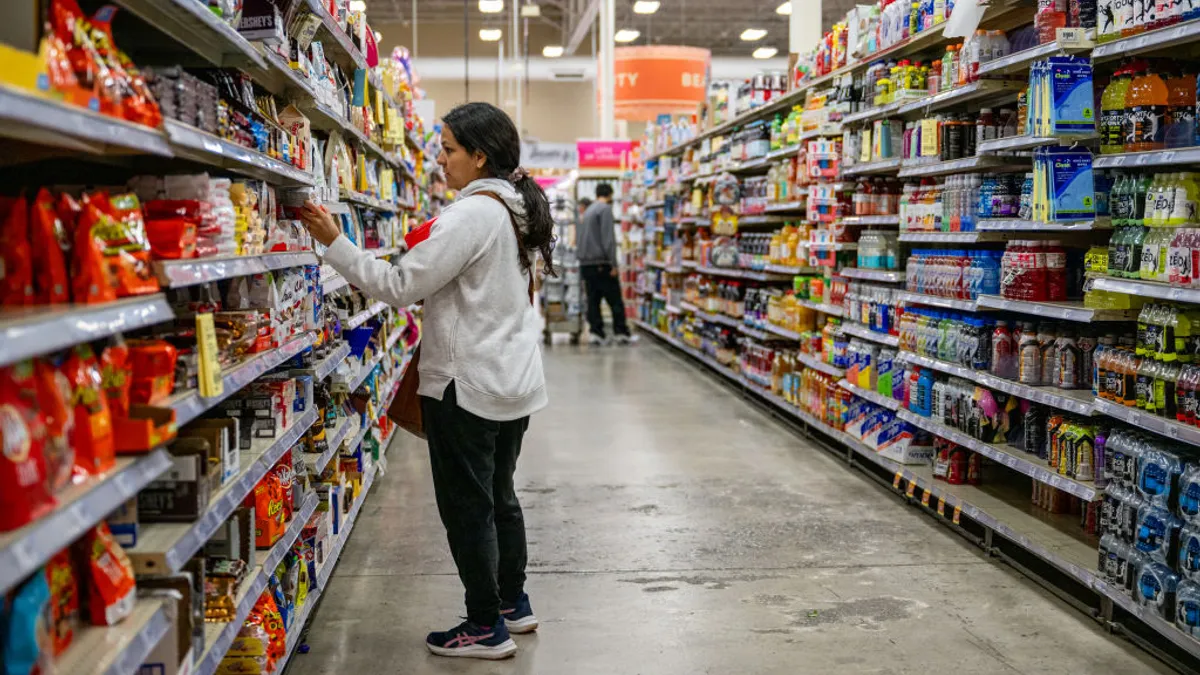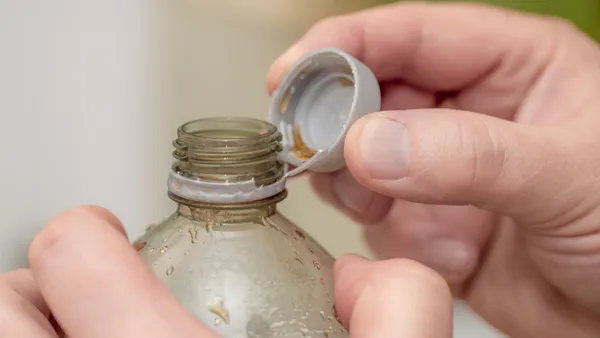As California’s legislative session came to a close this week, state lawmakers sent multiple packaging-related bills toward the finish line, now pending Gov. Gavin Newsom’s signature.
Those bills will enact changes to cannabis packaging, the state’s packaging EPR and bottle bills, as well as the approach to single-use plastic alternatives. Meanwhile, a two-year bill seeking to establish more uniform date labeling on food and beverage packaging remains at bay after being amended in the Senate this summer.
| Bill Number | Highlights | Bill Status |
| SB 303 | “Cleanup” bill for “ambiguities” in 2022 EPR law | Passed |
| SB 353 | Expands container redemption program to include fruit and vegetable juices | Passed |
| SB 665 | Creates a working group for “single-use plastic alternatives” | Passed |
| AB 1207 | Updates cannabis packaging and labeling guidelines | Passed |
| AB 660 | Requires uniform phrasing for date labeling | Converted to 2-year bill |
Clarifications to 2022 packaging EPR law: State Sen. Ben Allen, who led California’s 2022 extended producer responsibility law (SB 54), positioned SB 303 as “cleanup” for that law’s ambiguities that “improves the new law to ensure implementation aligns with legislative intent.” Revisions to the EPR law include clarifying that producers and the producer responsibility organization are the parties responsible — rather than local governments or waste haulers — for ensuring material meets CalRecycle criteria. It also clarifies that “responsible end markets” refers to where material is reclaimed and made into new material, as opposed to the entire collection and recycling process. It further clarifies how any possible disputes between the PRO and local governments would be resolved. The bill received support from certain California climate groups and did not have any recorded opposition.
More containers to be accepted under bottle bill: SB 353 will expand the California Beverage Container Recycling and Litter Reduction Act by adding large fruit and vegetable juice containers. As such, any size juice containers would be allowed come Jan. 1. The Container Recycling Institute previously estimated that the update could add another 188 million containers to the program. Shelf labels for newly included beverages have until Jan. 15, 2024, to be updated. In addition, the bill exempts 100% fruit juice beverage containers that are 46 ounces or larger, as well as vegetable juice containers that are 16 ounces or larger, from consideration in calculating the required percentage of postconsumer recycled plastic for a beverage manufacturer until Jan. 1, 2026. The bill was supported by numerous recycling entities. There was no recorded opposition.
Evaluating alternatives to single-use plastics: SB 665, also sponsored by Allen, compels the California Environmental Protection Agency to create a working group by the start of 2025 that’s focused on establishing a policy framework for evaluating alternatives to plastics for single-use products, such as bioplastics. That framework is intended to reduce confusion and greenwashing around plastic alternatives. It’s meant to aid policy decisions around marketing or lifecycle management to help create “a more sustainable and circular economy,” according to a bill analysis. The working group is charged with coming up with recommendations, including potential scientific testing standards, that could certify novel materials. The bill was supported by the League of California Cities, the National Stewardship Action Council, and certain area waste haulers, among others. There was no recorded opposition.
Cracking down on kid-friendly cannabis packaging: Assemblymember Jacqui Irwin moved to implement provisions in the Control, Regulate and Tax Adult Use of Marijuana Act to prohibit the sale, distribution, or manufacture of cannabis or cannabis products, packaging or labeling that are attractive to children. Other states have also enacted cannabis packaging restrictions to avoid appealing to children. Multiple cannabis trade groups in California opposed AB 1207, saying it would increase cost burdens on licensed industry operators “while empowering an unlicensed market that flagrantly markets to children.”
Standardizing ‘best by’ and ‘use by’ labels: AB 660, which was converted into a two-year bill, seeks to reduce consumer confusion and food waste by standardizing date labeling on food and beverage products; currently, it’s up to manufacturers, processors and retailers to voluntarily follow uniform terms. The bill seeks to eliminate “sell by” dates, while promoting “best if used by” phrasing to indicate the quality date of an item and “use by” to indicate the safety date. The bill was cosponsored by Californians Against Waste and the Natural Resources Defense Council and supported by numerous environmental groups and food banks. An earlier version faced opposition from the Consumer Brands Association and several farm, egg, dairy and poultry group; in the current version, exemptions now apply to infant formula and eggs.












